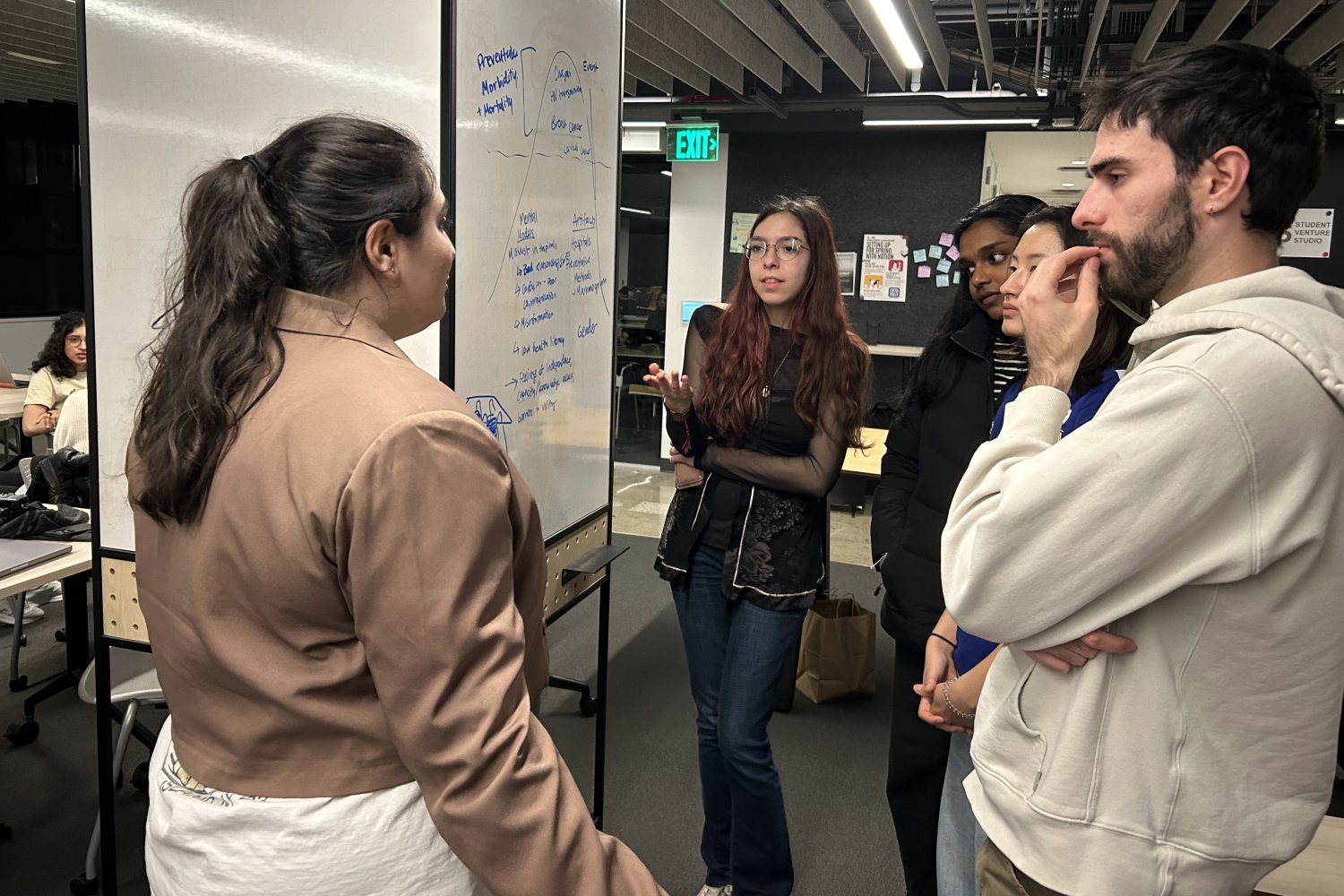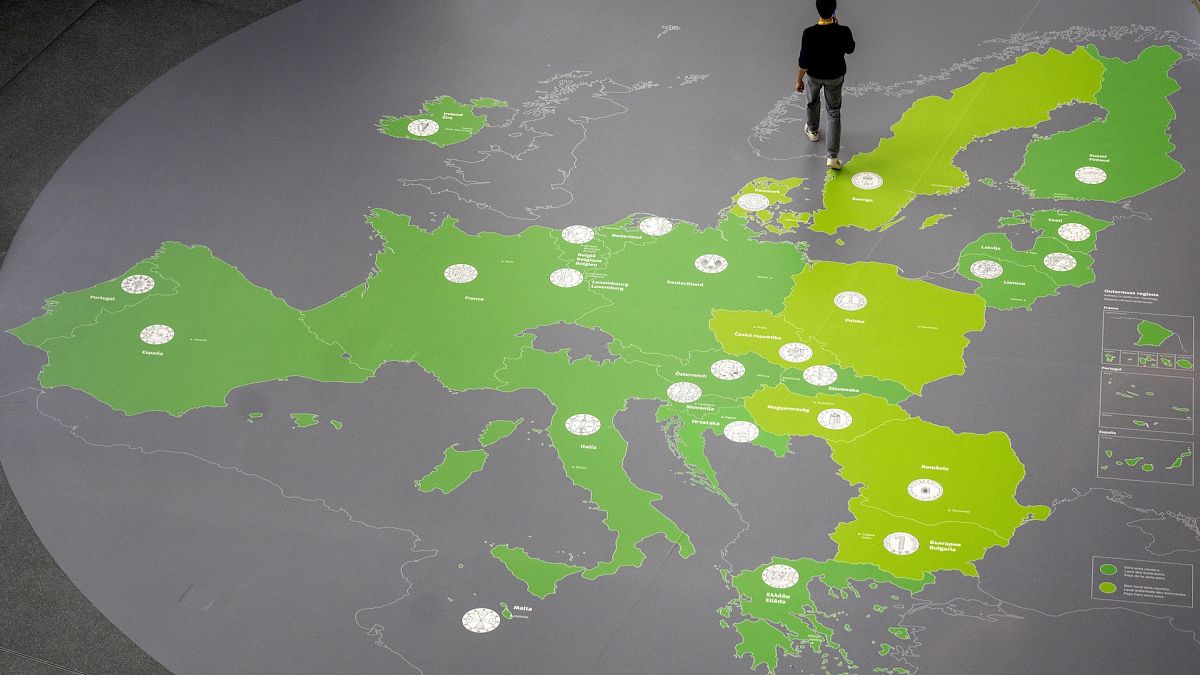Imagine a world where testing for Lyme disease is as easy as placing a tick into a test tube, waiting a few minutes, and observing a color change. This seemingly simple method is becoming a reality thanks to MIT Sloan Fellow Erin Dawicki, a physician’s assistant dedicated to making Lyme disease testing more accessible and affordable. Observing a significant rise in undiagnosed Lyme disease cases in her practice, Dawicki joined forces with fellow MIT students to establish Lyme Alert, a pioneering startup that offers the first at-home Lyme screening kit utilizing nanotechnology.
Lyme Alert is committed to social impact, aiming to expedite diagnoses and leverage technology to monitor disease spread effectively. Their involvement in the 2024 IDEAS Social Innovation Challenge allowed the team to enhance their solutions while continually prioritizing social good. The initiative culminated in them securing the top award at a recent ceremony.
For over 23 years, IDEAS has cultivated an innovative community, enabling hundreds of entrepreneurial students to refine their skills alongside stakeholders, veteran entrepreneurs, and a robust network of alumni. The 14 teams in the 2024 IDEAS cohort join over 200 past teams, many of which continue to thrive today, collectively raising over $1.5 million in seed funding since 2001.
“IDEAS is a prime example of experiential learning at MIT: empowering students to ask essential questions, explore fresh frameworks, and suggest sustainable solutions to pressing challenges in collaboration with community partners,” stated Lauren Tyger, assistant dean of social innovation at the Priscilla King Gray Public Service Center (PKG Center) at MIT.
As MIT’s leading social impact incubator within the PKG Center, IDEAS equips students to advance their initial ideas. Participants learn to build connections with stakeholders affected by social issues, propose solutions that generate measurable impact, and create effective social enterprise models.
“This program opened my eyes to the intersection of social impact and entrepreneurship, which I previously viewed as opposing fields,” shared Srihitha Dasari, a rising junior in brain and cognitive sciences and co-founder of award-winning team PuntoSalud. “It provided me with crucial skills to further my involvement in the startup ecosystem and expand my network for creating change.”
Developing Tomorrow’s Leaders
Throughout a semester-long journey, IDEAS teams engage in hands-on workshops, refine their concepts with mentors, and pitch their solutions to peers and industry judges. This transformative process empowers students to convert their ideas into social innovations across various sectors, including healthcare, finance, climate, and education.
The program’s finale occurs at the MIT Museum’s awards ceremony, where teams unveil their final products. This year’s event featured a keynote speech from Christine Ortiz, a professor of materials science and engineering. Her deep commitment to socially-directed science resonates with IDEAS’ mission of driving social impact.
“I was grateful to be a part of the journey for these 14 teams,” Ortiz expressed. “IDEAS embodies the essence of what MIT needs: innovators who can critically analyze community problems.”
Five teams were honored with awards ranging between $6,000 and $20,000, evaluated by industry experts who volunteered as judges. Additionally, two grants of $2,500 were awarded to teams that garnered the most votes on the MIT Solve initiative’s virtual showcase.
The award-winning teams this year include: Lyme Alert, with their at-home tick testing kit for Lyme disease; My Sister’s Keeper, focused on creating a leadership incubator for Muslim immigrant women in the U.S.; Sakhi – Simppl, offering a WhatsApp chatbot with verified health information; BendShelters, providing sustainable bamboo shelters for displaced individuals in Myanmar; PuntoSalud, which delivers personalized health information in Argentina; ONE Community, connecting Indian businesses to grow their networks; and Mudzi Cooking Project, addressing firewood accessibility challenges in Malawi.
This year marked the introduction of the inaugural Amazon Prizes for Social Good, recognizing the top five projects, a partnership facilitated by the PKG Center and corporate ally Amazon. Tye Brady, chief technologist at Amazon Robotics, commented on the teams’ inspiration to prioritize giving over taking, illustrating their potential as the leaders of tomorrow.
All participating teams will spend the summer refining their ideas and providing updates at the beginning of the next academic year. Additionally, the awarded teams will receive ongoing support from the PKG Center and a founder network for 16 months.
Leveraging MIT’s Innovation Ecosystem
IDEAS is just one of the many programs offered by the PKG Center, empowering students to pursue social impact projects. Alongside other Institute resources for innovators, the PKG Center supports students in applying their creative skills to address real-world issues while promoting community-based solutions to systemic challenges.
“The PKG Center plays a vital role in mobilizing the growing number of students eager to create impact-driven ventures,” said Don Shobrys, director of MIT Venture Mentoring Service.
According to Tyger, “IDEAS equips students with frameworks for comprehending the ecosystems surrounding specific challenges, helping them identify existing efforts, discover gaps, and design solutions that deliver sustainability and social good.”
While IDEAS highlights social impact, it thrives within MIT’s robust entrepreneurial ecosystem. “Many generous individuals donate their time, recognizing we’re all committed to fostering student growth,” Tyger adds.
This year’s collaborators included MIT Sandbox, MIT D-Hive, and the Arts Startup Incubator, which co-hosted application sessions; BU Law Clinic, D-Lab, and Systems-Awareness Lab that provided guest speakers; Venture Mentoring Service, which aided teams with mentorship; and entrepreneurs-in-residence from the Martin Trust Center for MIT Entrepreneurship, who judged final presentations and offered guidance; along with DesignX and the Center for Development and Entrepreneurship at MIT, which provided extensive support to multiple teams; MIT Solve, hosting teams on their voting platform; and MIT Innovation HQ, facilitating collaborative opportunities for students.
While IDEAS aims to drive transformative change for public benefit, many students view the program as a catalyst for their own transformation. “Before IDEAS, I didn’t see myself as an innovator — I was just someone passionate about tackling problems faced by those dealing with chronic diseases,” reflected Anika Wadhera, a senior in biological engineering and co-founder of Chronolog Health, a platform revolutionizing chronic illness management. “Now, I feel empowered to make a tangible impact by understanding the diverse stakeholders and requirements essential for crafting effective solutions.”
Photo credit & article inspired by: Massachusetts Institute of Technology



